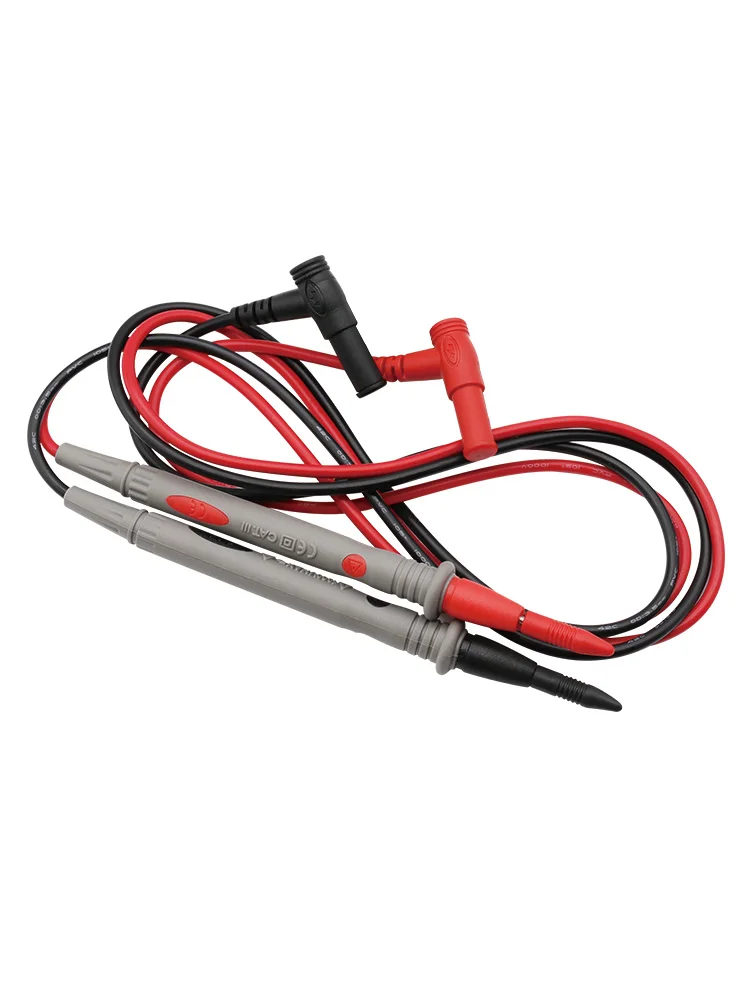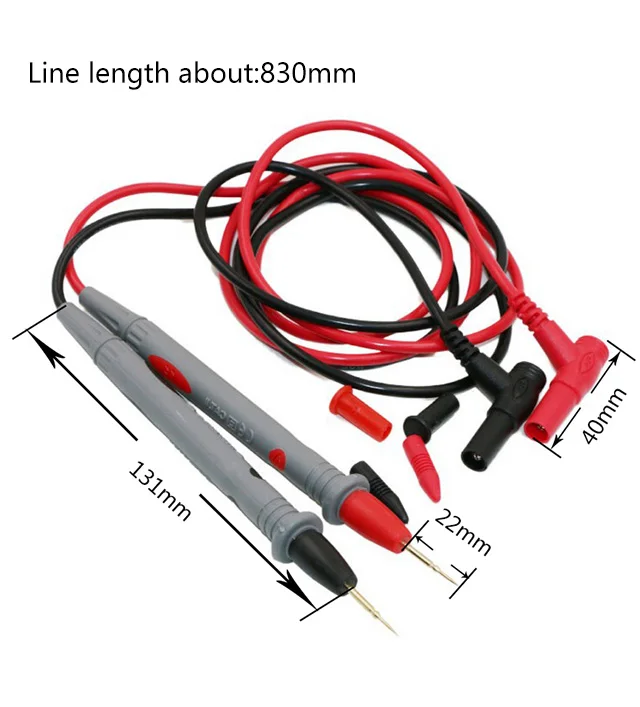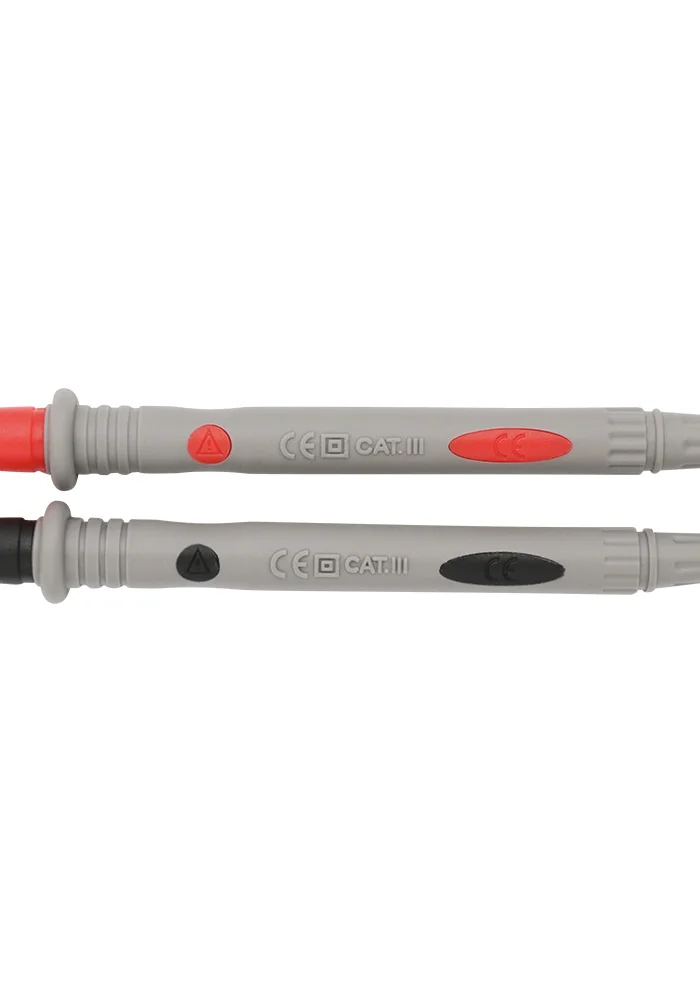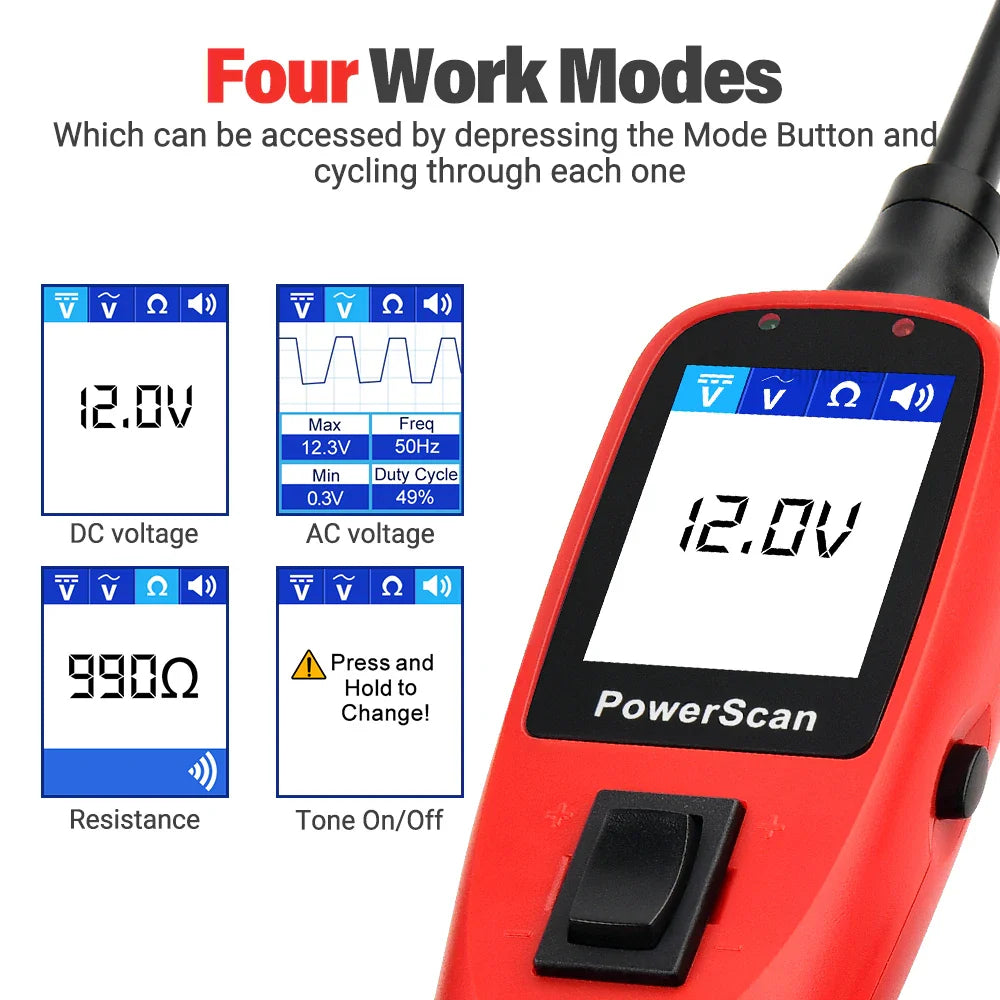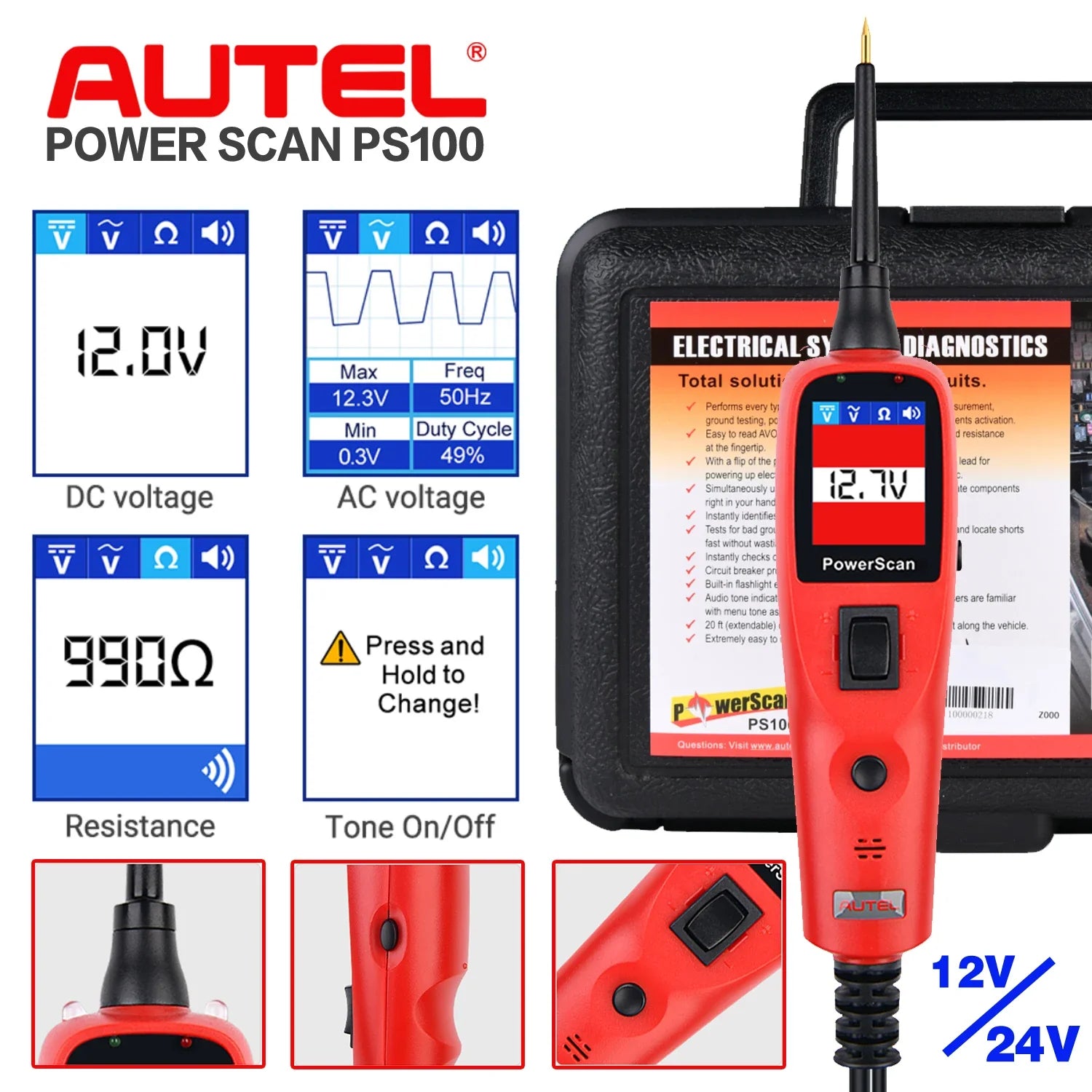Multimeters: Accurate, Reliable, and Versatile Measurement Tools
Professional Multimeters for Precision Testing
Multimeters with Advanced Features for All Applications
Accurate Multimeters for Voltage, Current, and Resistance
Durable Multimeters for Electrical and DIY Projects
High-Quality Multimeters Available at OurLum
Discover OurLum’s Multimeters – reliable tools for precise electrical measurements. Our multimeter collection is perfect for professionals, digital multimeter enthusiasts, and DIYers, offering models equipped to handle voltage, current, resistance, and continuity testing with ease.
These accurate multimeters feature clear displays, intuitive controls, and advanced safety settings, making them ideal for any setting, from labs to workbenches. Built with durability and reliability in mind, each high-precision multimeter at OurLum ensures consistent performance across various testing applications.
Key Features and Benefits
- Accuracy: Delivers precise measurements for voltage, current, resistance, and more.
- Ease of Use: Simple interface with easy-to-read displays and intuitive controls.
- Versatility: Suitable for both professional and DIY electrical tasks.
- Durability: Built to withstand rigorous usage and provide lasting performance.
Upgrade your toolkit with OurLum’s professional multimeters, or explore our DIY multimeter options for at-home projects. Each multimeter is crafted with accuracy, safety, and ease of use in mind, enabling you to test and troubleshoot effectively.
Our selection includes the best multimeters for professionals and hobbyists alike. Whether you need a versatile multimeter for multiple measurements or a multimeter for electrical testing, OurLum offers quality you can trust.
Key Takeaways:
- Introduction
- Types of Multimeters
- Key Features and Functions
- How to Use a Multimeter
- Common Applications
- Safety Tips and Best Practices
- Maintenance and Calibration
Understanding the Multimeter: A Key Tool in Electrical Measurement
What is a Multimeter?
A multimeter is a versatile instrument used for measuring electrical properties such as voltage, current, and resistance. Commonly used by electricians and hobbyists alike, it serves as an essential tool in diagnosing and troubleshooting electrical circuits. With a simple switch of a dial, users can quickly determine the performance of various electrical components, making it a staple among electrical testing tools.
The Importance of Electrical Measurement
Understanding how to use a multimeter is crucial for anyone working with electrical systems. Accurate measurements help in diagnosing issues before they escalate, thereby ensuring safety and efficiency. Without the ability to measure electrical properties accurately, it would be challenging to maintain and repair any type of electrical system, whether in residential settings or industrial applications.
Versatility in Interpreting Voltage, Current, and Resistance
The multimeter is known for its ability to measure voltage (AC and DC), current, and resistance with remarkable precision. Voltage measurements can help determine if a circuit is receiving the correct voltage, while current readings are essential for understanding how much electricity is flowing through a circuit. Additionally, measuring resistance is vital when checking for shorts or opens in wiring. This versatility places the multimeter at the forefront of electrical testing tools, making it indispensable for professionals and enthusiasts alike.
Choosing the Best Multimeter
When searching for the best multimeters in 2023, it’s essential to consider the features that will best serve your needs. Factors such as measurement range, accuracy, and additional functionalities (like capacitance, frequency measurement, and continuity testing) should influence your decision. Familiarizing yourself with various options is key to making an informed choice, which is where a well-crafted multimeter buying guide can be incredibly beneficial.
In summary, a multimeter is not just a tool but a fundamental part of understanding electricity and maintaining electrical systems. Whether you are a DIY enthusiast or a professional technician, mastering how to use a multimeter enhances your ability to troubleshoot effectively and ensures your work is both safe and efficient.
Types of Multimeters
When it comes to how to use a multimeter, understanding the different types available on the market is essential. Each type of multimeter serves a unique purpose and is designed to fit specific application needs. This section provides a detailed exploration of the various types of multimeters: analog, digital, and smart multimeters.
Analog Multimeters
Analog multimeters are the oldest type of multimeters and use a moving needle to display readings on a dial. Despite being somewhat outdated compared to their digital counterparts, they still play a vital role in certain applications. For instance, the continuous display of an analog meter can be invaluable when monitoring rapidly fluctuating signals.
"Analog multimeters are often favored by purists and professionals seeking a tactile experience and immediate visual feedback." - Electrical Testing Tools Expert
These devices are particularly effective when performing electrical testing in circuits where high-frequency signals are present. However, they may require more effort to read accurately than digital versions, as the precision largely depends on the user's experience. Hence, they are less common among hobbyists but still cherished by professionals who appreciate their simplicity and reliability.
Digital Multimeters
Digital multimeters have become the go-to choice for most users today. They offer high accuracy and clarity with their numerical displays, making them incredibly user-friendly. When purchasing a multimeter, you will find that digital models can easily measure voltage, current, resistance, and even capacitance, making them a versatile tool for any electrician or DIY enthusiast.
"The shift to digital multimeters reflects our need for precision, ease of use, and versatility in modern electrical testing." - Tech Review Specialist
Many of the best multimeters 2023 are digital models, equipped with various advanced features such as auto-ranging, data logging, and even wireless connectivity. This means users can save readings directly to their smart devices, providing enhanced flexibility and convenience. For anyone just starting, a digital multimeter is often recommended in a multimeter buying guide due to its user-friendly design.
Smart Multimeters
Innovations in technology have also led to the development of smart multimeters, which are revolutionizing the way we handle electrical testing. These devices integrate advanced features like Bluetooth connectivity, allowing users to sync data with mobile apps for better tracking and management of measurements.
"Smart multimeters are not just tools; they are a glimpse into the future of electrical testing, blending functionality with intuitive technology." - Innovations in Electronics Blog
This type of multimeter is perfect for anyone who values efficiency and accuracy. The ability to visualize data and share results instantly offers significant advantages in both professional and educational settings. Whether troubleshooting complex electrical systems or conducting regular maintenance, smart multimeters enhance user experience and provide invaluable support.
In conclusion, selecting the right type of multimeter depends on the specific needs of the user. Each category—**analog, digital, and smart multimeters**—comes with its own set of features and applications. Understanding these distinctions is crucial for effective electrical testing and ensuring that you have the right tool for your projects.
Key Features and Functions of a Multimeter
Understanding the essential features of a multimeter is crucial for both beginners and seasoned professionals. When diving into a multimeter tutorial, you will come across various aspects that influence your choice and usability. Here’s a detailed look at the key features you should consider while selecting a multimeter, ensuring that your investment aligns with your needs.
Measurement Range
The measurement range of a multimeter defines the highest and lowest electrical values it can measure accurately. It is vital to choose a multimeter that offers a range that suits your specific tasks:
- For basic household tasks, a range of up to 600 volts is often sufficient.
- If you are involved in automotive or industrial applications, look for multimeters that can measure several thousand volts, ensuring reliability across different scenarios.
In your multimeter buying guide, always check the specifications regarding the ranges provided, ensuring it meets your expected needs for both voltage and current measurements.
Accuracy
When it comes to how to use a multimeter, accuracy cannot be overlooked. The accuracy is typically expressed as a percentage of the reading plus a number of least significant digits (LSD). Higher accuracy is essential for critical testing scenarios:
| Accuracy Level | Best For |
|---|---|
| ±0.5% | General electronics and regular household tasks |
| ±0.05% | Precision engineering and experimental work |
As you explore the different models of the best multimeters 2023, aim for a unit that offers optimal accuracy for your applications, especially if you're performing critical measurements.
Display Type
The display type plays a significant role in the usability of a multimeter. Consider the following options:
- Digital displays offer clear readings and are usually easier to read than analog counterparts.
- Backlit displays are invaluable for working in low-light conditions.
- Some advanced multimeters come with graphical displays that can plot reading trends or detailed data.
Whether you’re using it for simple home repairs or in a demanding professional environment, the display should cater to your needs for clarity and ease of interpretation.
Additional Functionalities
Today's multimeters often come with extra functionalities that can enhance their utility:
- Data Logging: This feature enables users to store and retrieve measurement data over time, which is particularly useful for troubleshooting and analysis.
- Connectivity: Many modern multimeters offer Bluetooth or USB connectivity, facilitating easy data transfer to computers or smartphones for further analysis and reporting.
Incorporating these features can significantly improve your electrical testing experience, ultimately allowing for more accurate and efficient work. As you navigate through the features in your multimeter buying guide, consider how these functionalities align with your testing needs.
By focusing on these key features and functions, you can select a multimeter that not only suits your electrical testing tools needs but also enhances your overall experience and productivity. Don’t hesitate to engage with other users or share your experiences in the comments below, as this exchange could provide additional insights!
How to Use a Multimeter
Using a multimeter may seem daunting at first, but with the right guidance, it becomes an invaluable tool for any DIY enthusiast or professional electrician. Follow this multimeter tutorial for a step-by-step understanding of how to use a multimeter effectively.
Setting Up Your Multimeter
Before you can start measuring, it’s crucial to correctly set up your multimeter. Ensure that your device is in proper working condition, which includes:
- Checking that the probes are securely connected and undamaged.
- Replacing the batteries if the multimeter is displaying low battery warnings.
- Turning on your multimeter to ensure it powers up without issues.
Selecting the Appropriate Measurement Mode
Multimeters often come with various modes for measuring voltage (V), current (A), and resistance (Ω). Here’s how to select the right mode:
- Voltage Measurement: For measuring DC voltage, set the dial to the V with a straight line (for direct current), or to the V with a wavy line (for alternating current).
- Current Measurement: To measure current, select the A setting. Ensure the probes are in the correct input ports specific for current measurement.
- Resistance Measurement: For checking resistance, switch to the Ω mode. This will help you determine if a component is functioning properly.
Interpreting Readings
Understanding the readings displayed on your multimeter is a vital skill. Here’s how to decipher various measurements:
- Voltage: A higher voltage reading means a strong potential difference, which is useful when testing batteries or power sources.
- Current: Current readings allow you to determine how much electricity flows through a circuit. Knowing this is key when troubleshooting electrical issues.
- Resistance: A reading of zero indicates a short circuit, while infinite resistance suggests an open circuit. These insights can significantly aid in electrical testing tools analysis.
By following this guide, you will gain confidence in using your multimeter, enhancing your ability to perform various electrical tasks. For anyone looking at the multimeter buying guide for the best multimeters 2023, knowledge of usage is equally essential. Share your experiences or ask questions below; let’s keep the conversation going!
Common Applications of Multimeters
Automotive Diagnostics
One of the primary practical applications of a multimeter lies in the field of automotive diagnostics. Car enthusiasts and mechanics alike utilize this electrical testing tool to diagnose electrical problems within vehicles. With the ability to measure voltage, current, and resistance, a multimeter allows for precise testing of circuits, helping to ensure that car components such as batteries, alternators, and fuses are functioning correctly.
"A good multimeter can save both time and money when troubleshooting car problems." - Automotive Engine Specialist
Electronic Repair
In the realm of electronic repair, multimeters serve as an essential tool for technicians. Whether it’s a malfunctioning circuit board in a laptop or a faulty component in a home appliance, using a multimeter can help trace issues swiftly. By measuring continuity, checking for shorts, and ensuring appropriate voltage levels, technicians can effectively identify which components need replacement or repair.
DIY Projects
For the avid DIYer, a multimeter tutorial can unlock endless possibilities. From home improvement tasks to crafting electronics, knowing how to use a multimeter can enhance your projects’ safety and effectiveness. Whether you’re installing new light fixtures or setting up an elaborate home theater system, you can utilize your multimeter to ensure appropriate voltage and connections, enhancing both the safety and functionality of your installations.
Home Electrical System Maintenance
Regular maintenance of home electrical systems is crucial for safety and efficiency. Using a multimeter, homeowners can monitor their electrical installation by checking the condition of outlets, light bulbs, and surge protectors. This not only enhances the longevity of appliances but also helps to prevent potentially hazardous electrical issues.
Conclusion: Evaluating Your Needs
With so many practical applications, selecting the best multimeters 2023 is essential for both beginners and professionals alike. Whether you’re involved in automotive diagnostics, electronic repair, or tackling DIY projects, understanding how to use a multimeter effectively can set you on the path to success.
What are your favorite uses for a multimeter? Share your experiences in the comments below!
Safety Tips and Best Practices
When using a multimeter, prioritizing safety is paramount. Whether you are working on electrical repairs or performing diagnostic tests, adhering to the appropriate safety measures ensures not only your protection but also the effective use of electrical testing tools. Here, we delve into the essential safety considerations and best practices for using a multimeter effectively.
Protective Gear
Before delving into electrical work, it's critical to equip yourself with the necessary protective gear. This not only prevents injury but also promotes safe practices when using a multimeter. Always consider the following:
- Wear insulated gloves to protect against electric shock.
- Use safety goggles to guard your eyes from potential sparks.
- Opt for shoes with rubber soles to minimize the risk of electrical conduction.
Understanding Voltage Limitations
Each multimeter comes with specified voltage limitations that should never be exceeded. Familiarizing yourself with these limitations is essential for safe operation and ensures that you don’t inadvertently damage the tool or yourself. Always check:
- The maximum voltage rating of your multimeter.
- The appropriate settings for measurements; never attempt to measure above the specified range.
- To ensure connections are firm and secure before taking readings to prevent arcing.
Proper Handling Techniques
Proper handling of your multimeter can significantly reduce accidents. Here are recommended practices to follow:
- Always hold the multimeter from insulated areas, avoiding contact with metal probes during testing.
- Keep the multimeter and test leads dry and in good condition to maintain insulation.
- Disconnect probes from a circuit before changing the settings or function on the multimeter.
By adhering to these safety tips and best practices, you ensure that your experience with your multimeter is not only effective but also safe. Remember, whether you’re a beginner following a multimeter tutorial or a seasoned professional referencing a multimeter buying guide, these precautions are central to any electrical testing endeavor.
Maintenance and Calibration of Your Multimeter
Keeping Your Multimeter in Top Condition
To ensure your multimeter serves you well throughout its lifespan, proper maintenance is crucial. Regular checks and simple care routines can significantly enhance the durability and accuracy of your multimeter. Here are some practical tips on how to maintain a multimeter effectively:
- Store Properly: Always keep your multimeter in its case when not in use to prevent dust and debris buildup.
- Handle with Care: Avoid dropping the device or exposing it to extreme temperatures and humidity.
- Inspect Regularly: Frequently check for physical damage such as cracked displays or damaged leads, which can affect functionality.
Calibration for Accuracy
Calibration is essential for maintaining measurement accuracy. Regular calibration ensures that your readings remain consistent and trustworthy. Here’s how to go about it:
- Frequency: As a rule of thumb, calibrate your multimeter at least once a year, or more frequently if it is used extensively.
- Calibration Process: Follow the manufacturer's instructions meticulously. Use a reference standard that is known to be accurate for the parameters you're measuring.
- Record Keeping: Maintain a log of calibration dates and results. This is especially important for professional use, as it can impact compliance and safety.
Routine Checks
Performing routine checks can catch potential issues before they escalate. Here are some routine tests to incorporate into your regular maintenance schedule:
| Task | Frequency | Details |
|---|---|---|
| Visual Inspection | Monthly | Look for physical defects, wear, and tear in the casing and leads. |
| Battery Check | Monthly | Ensure the battery is charged and replace it if necessary to avoid inaccurate readings. |
| Functionality Test | Quarterly | Test the multimeter on known sources to ensure it registers correctly. |
By adhering to these routine checks, you not only ensure your multimeter is functioning properly but also extend the lifespan of this essential electrical testing tool.
Final Thoughts
Taking the time to care for and calibrate your multimeter will not only enhance its longevity but also ensure its reliability in critical tasks. As you explore the best multimeters of 2023, remember that effective multimeter maintenance and timely calibration are key aspects that dictate the performance of your device. Incorporate these guidelines into your routine, and you’ll confidently handle a wide range of electrical testing duties.
Conclusion: Mastering Your Multimeter
In summary, understanding how to effectively use a multimeter is an essential skill for anyone interested in electronics, whether you are a DIY enthusiast, a professional electrician, or simply someone who enjoys tinkering with electrical devices. This multimeter tutorial has equipped you with the foundational knowledge necessary to navigate the various functions of your multimeter and confidently conduct electrical tests.
We've explored important aspects, such as choosing the best multimeters 2023, examining the features of different models, and provided a comprehensive multimeter buying guide. Remember, the right electrical testing tools can make a significant difference in the accuracy of your measurements and the quality of your projects.
As you embark on your journey of discovery and troubleshooting, consider this: every measurement taken is a step toward enhancing your understanding of electrical systems. Whether you are measuring voltage, current, or resistance, your multimeter is a gateway to endless learning opportunities. So, grab your multimeter and start experimenting—who knows what you’ll uncover!
Now that you are armed with tips and insights, think about how you can incorporate these practices into your next project. What will you measure? How can you leverage your newfound skills in practical applications? Let the multimeter guide you into a world of possibilities!
FAQs
What is a multimeter?
A multimeter is a versatile instrument used for measuring voltage, current, and resistance in electrical circuits. It's an essential tool for anyone working with electrical testing tools.
How do I use a multimeter?
Using a multimeter typically involves setting the device to the desired measurement (voltage, current, or resistance), connecting the probes to the circuit, and reading the displayed value. For a step-by-step guide, check out our multimeter tutorial.
What features should I look for in a multimeter?
When choosing a multimeter, consider features such as digital vs. analog display, auto-ranging capability, safety ratings, and additional functions like temperature measurement or diode testing. Our multimeter buying guide provides detailed insights.
What are the best multimeters in 2023?
Some of the best multimeters 2023 include models from brands like Fluke, Klein Tools, and Extech. Each model offers unique features to cater to different needs, from basic household troubleshooting to advanced electrical diagnostics.
Can a multimeter measure current?
Yes, a multimeter can measure current, but to do so, it must be connected in series with the circuit. Ensure you're using the proper settings and probes to prevent damaging the multimeter.
Is there a multimeter for beginners?
Absolutely! There are many beginner-friendly multimeters that are easy to use and come with clear instructions. These models usually have basic functions suitable for simple tasks, making them perfect for those new to how to use a multimeter.
What safety precautions should I take when using a multimeter?
Always start with the multimeter set to the correct measurement type and range. Wear appropriate personal protective equipment (PPE), ensure you're working in a safe environment, and never measure current with the multimeter set to voltage mode.







